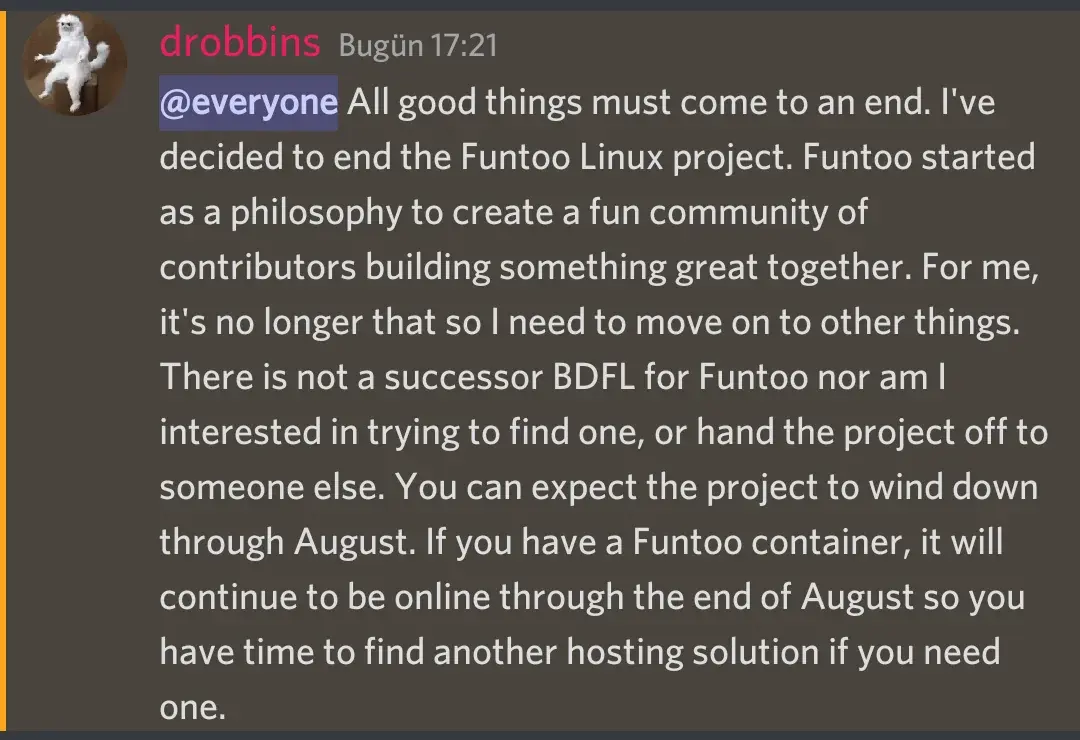26
They did some crazy stuff, also implementing core technologies from the ground up.
full changelog
- ABRoot v2: Complete rewrite using OCI images for reliable updates, improved support for atomic transactions, system state dumping, changing kernel flags, a built-in method to edit the configuration, ability to generate local images with extra packages (for drivers, codecs, and libraries), ability to rollback, and re-generate the initramfs.
- Hybrid Debian Base: Transition from Ubuntu to a hybrid base made of Debian packages and Vib modules for increased flexibility and control over updates and configuration.
- LVM Thin Provisioning: Efficient disk space usage with logical volumes, allowing virtual filesystems larger than the available physical storage and supporting the dynamic allocation of space as needed for the two roots.
- PolKit Policies: Replaces sudo for secure privileged operations.
- VSO v2: Acts as system shell, package manager, and supports Android apps via Waydroid integrated with F-Droid. Improved the tasks automation system to cover infinite scenarios.
- DEB/APK Sideloading: Install .deb and .apk packages with Sideload Utility.
- Apx v2: Custom environments, supports various package managers, and introduces stacks for replicating environment configurations. Includes package manager mapping, stack creation, and subsystem management. Distrobox updated to version 1.7.2.1.
- Apx GUI: Graphical interface for APX management with ease.
- FsGuard and FsWarn: Boot-time system integrity checks to ensure system security and reliability.
- Vanilla Installer: Uses a reduced GNOME session, a new Albius backend that replaces distinst, new configuration screens, OEM support, and support for encrypting the /var partition with LUKS2. Supports manual partitioning and network configuration during installation.
- First Setup: Uses a reduced GNOME session, added network configuration, user creation, hostname configuration, allows picking your browser of choice, and improved screens.
- PRIME Profiles: A new GUI for switching graphics cards, enhancing hardware compatibility.
- Vanilla Tools: Utilities for managing system features: cur-gpu to display the GPU in use, nrun to run a command using the NVIDIA GPU, prime-switch to switch PRIME Profiles.
- Kernel 6.9.8: Ensures compatibility with the latest devices and peripherals.
- GNOME 46: Updated GNOME to version 46, introducing the new pill icon to switch between workspaces plus all the UI and stability improvements.
- Vib (Vanilla Image Builder): Our new OCI recipe system. Recommended method for creating custom and derivative OCI images of Vanilla OS, facilitating modular and scalable system builds. We have created a template for users to easily create custom images for Vanilla OS.
- Recovery Mode: Integrated in the installer with recovery tools like terminal, GParted, and documentation access for system restoration.
- Prometheus: Container library/engine for OCI image management, enhancing deployment processes in Albius and ABRoot.
- Eratosthenes: Platform for browsing package details from our Debian repositories, providing detailed package information.
- Atlas: Platform for browsing our OCI image details, aiding in system transparency.
- Pico, Core, Desktop Images: Structured for modularity and flexibility, forming the base of Vanilla OS.
- VM and NVIDIA Images: Proposed at installation time if the right hardware is identified.
- Dev Image: Can be used in APX, and provides a large set of development libraries/SDKs and tools.
- Chronos: Unified documentation server and frontend combining all guides and documentation for easier access and management.
- Update Feedback and Control: A new icon now appears on the top right of the screen when an update is being installed, click on it to stop the ongoing operation.
- New Wallpaper: Designed by community member hrstwn.
- Build Provenance: We are attesting our OCI images using GitHub Actions to ensure build provenance.
- New Branding: Introduced a new refreshed brand. Plymouth updated using our new brand.
- Deprecation of Vanilla Control Center: We have deprecated Vanilla Control Center and implemented all our settings in GNOME Settings.
- Updated AdwDialog Utility: With many UI and UX improvements.
- New App Tour: Introduced a new Tour app that shows after the first setup process.
- New Differ Utility: Used to extract info between OCI images.

